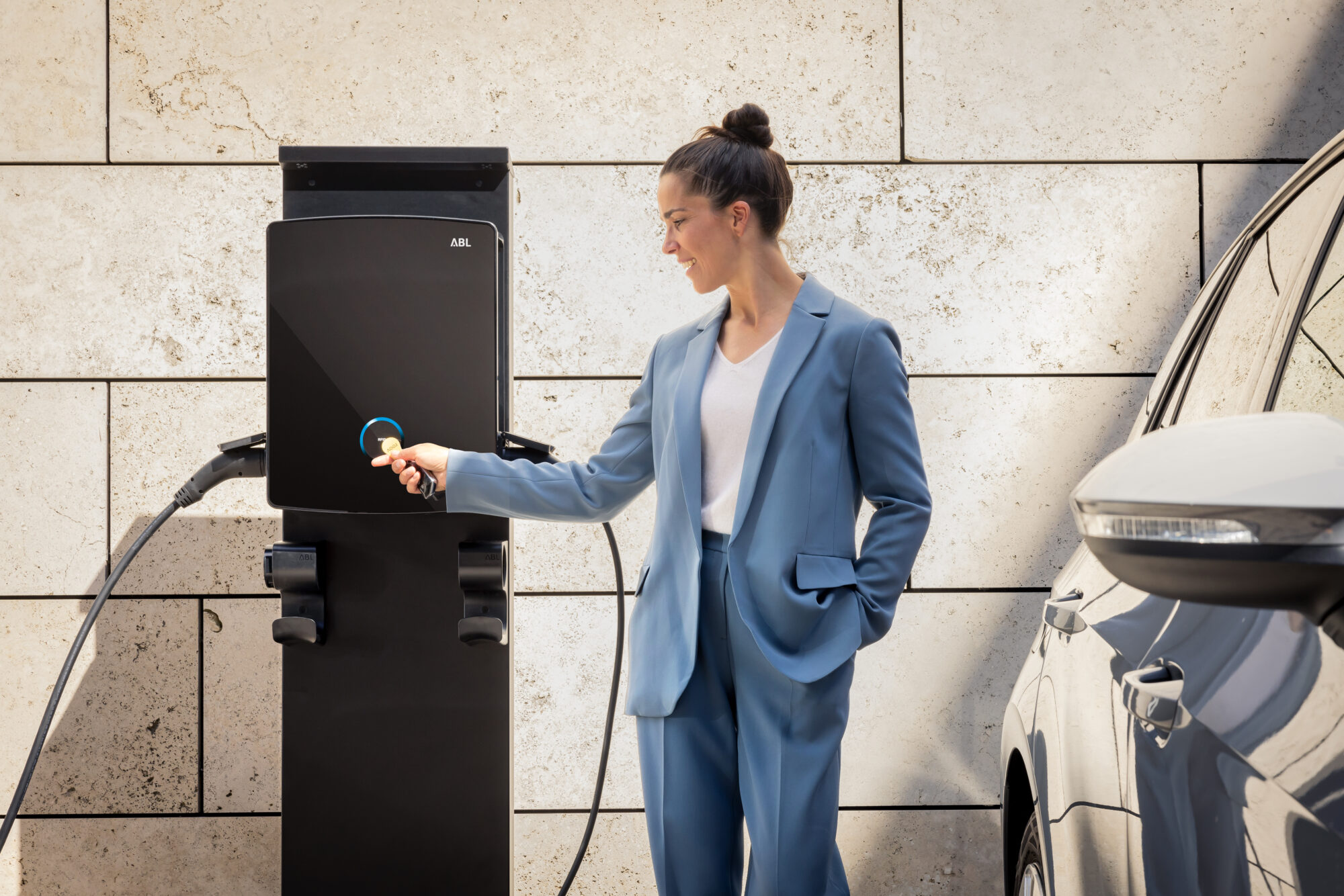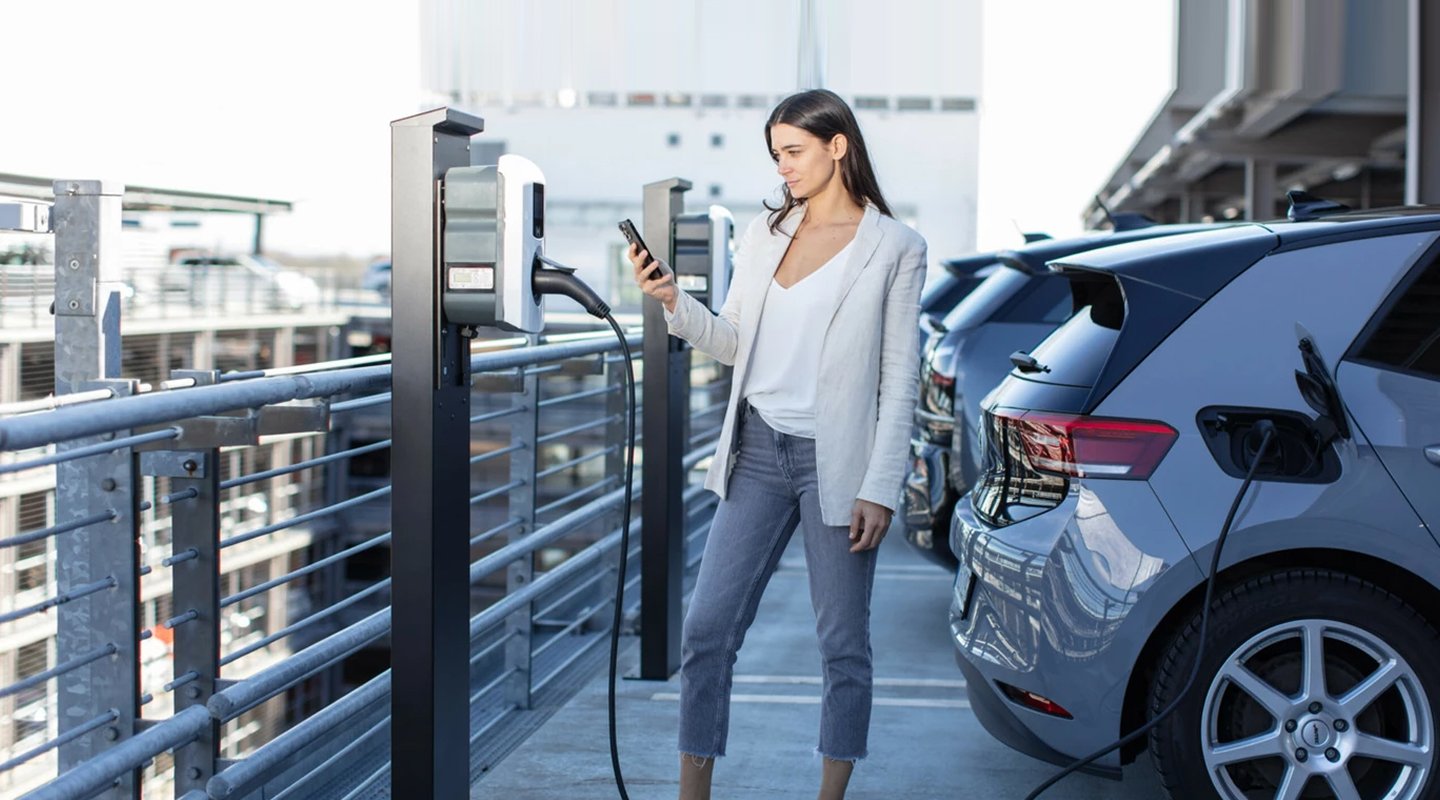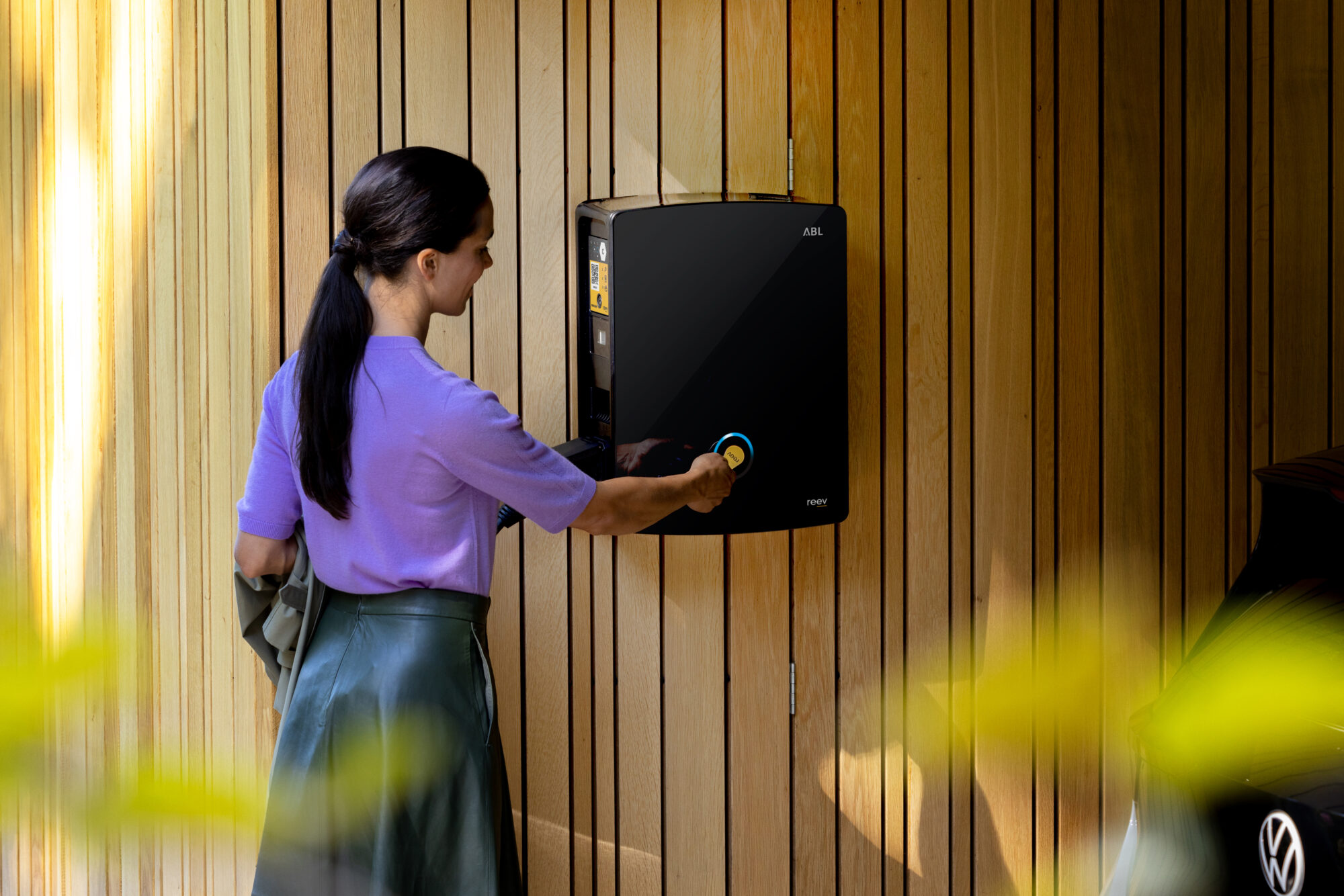High-quality hardware ensures the technically flawless operation of the charging stations.
The reev software complies with the open source communication standard OCPP (Open Charge Point Protocol). The reev Platform is compatible with charging stations from a wide range of hardware manufacturers. Here you can find an overview of all currently compatible hardware models.

reev offers two options for convenient and legally compliant charging of company cars at employees’ homes: At a wallbox with reev software or with the LinkOne intelligent charging cable. A combination of the two solutions is also possible.


As an alternative to the software-enabled wallbox, reev offers employees the option of charging via the LinkOne intelligent charging cable. The two solutions can also be combined.
LinkOne use case: An employee does not have a smart wallbox at home and cannot/will not install one
Because of the significantly cheaper electricity tariffs at home, you pay considerably less to charge your company cars there (compared to charging at public charging stations).
With just 12 company cars, costs can be saved in the five-figure range every year!
*Assumptions for the calculation: VW ID3 with 48 kWh gross capacity. Costs for public charging: 0.59 euro/kWh, costs for home charging: 0.44 euro/kWh. Vehicle is charged at 80% (80% * 48 kWh = 38.4 kWh), 12 charging processes per month.

Get in touch with us. We will be happy to send you further information or answer your questions personally.
In principle, the financing of company car charging at home must be agreed individually between the company car driver and the employer. The assumption of costs can also be generally formulated in a company eCar policy.
To ensure legally compliant billing, the hardware used must have an MID meter and be software-compatible. The charging station does not necessarily have to comply with calibration law. The reev software is compatible with all common hardware manufacturers and models. You can find a detailed list here.
Network reception must be ensured at the installation site, as the charging station communicates via SIM card. Contact an electrician who specializes in eMobility to commission you with the installation.
If the charging station meets the technical requirements, the reev software can also be retrofitted to an existing charging station at home. To do this, order a reev Connect Set (consisting of a setup kit and one or more license key(s)) to use the reev software.
Please contact the reev team at sales@reev.com. Please provide us with the names and e-mail addresses of the authorized company car drivers.
The specified contact person in the company receives the various receipts by e-mail each month.
Company car drivers also receive a monthly e-mail receipt about their own charging processes.
This procedure depends on whether the wallbox is a) owned by the company or b) owned by the employee. In principle, a company-specific regulation is recommended here, which can also be defined in an eCar policy if necessary.
In case a), for example, the employee can be paid off.
In case b), the wallbox remains the property of the employee after termination of the employment relationship.
Yes, with the reev Connect Set, the software can also be retrofitted to an already installed home charging station.
In principle, an access restriction must be set up at the charging station at home in order to ensure individual consumption recording and legally compliant billing. In the case of shared use of the home charging station, other users may also be authorized to charge at this station, e.g. partners, neighbors or guests. In this case, an authentication system coordinated with the employer is recommended.
Example:
This enables shared use with separate and accurate recording of charging processes. The employer is only charged the charging costs incurred by the company car driver for business-related charging processes.
We will be happy to help you!
Solutions
Products
Knowledge
Subscribe to the reev newsletter and receive regular updates about reev and the eMobility industry.
You are currently viewing a placeholder content from X. To access the actual content, click the button below. Please note that doing so will share data with third-party providers.
More InformationYou are currently viewing a placeholder content from Vimeo. To access the actual content, click the button below. Please note that doing so will share data with third-party providers.
More InformationYou are currently viewing a placeholder content from YouTube. To access the actual content, click the button below. Please note that doing so will share data with third-party providers.
More InformationYou are currently viewing a placeholder content from Facebook. To access the actual content, click the button below. Please note that doing so will share data with third-party providers.
More InformationYou need to load content from reCAPTCHA to submit the form. Please note that doing so will share data with third-party providers.
More InformationYou are currently viewing a placeholder content from Instagram. To access the actual content, click the button below. Please note that doing so will share data with third-party providers.
More InformationYou are currently viewing a placeholder content from X. To access the actual content, click the button below. Please note that doing so will share data with third-party providers.
More InformationYou need to load content from reCAPTCHA to submit the form. Please note that doing so will share data with third-party providers.
More Information